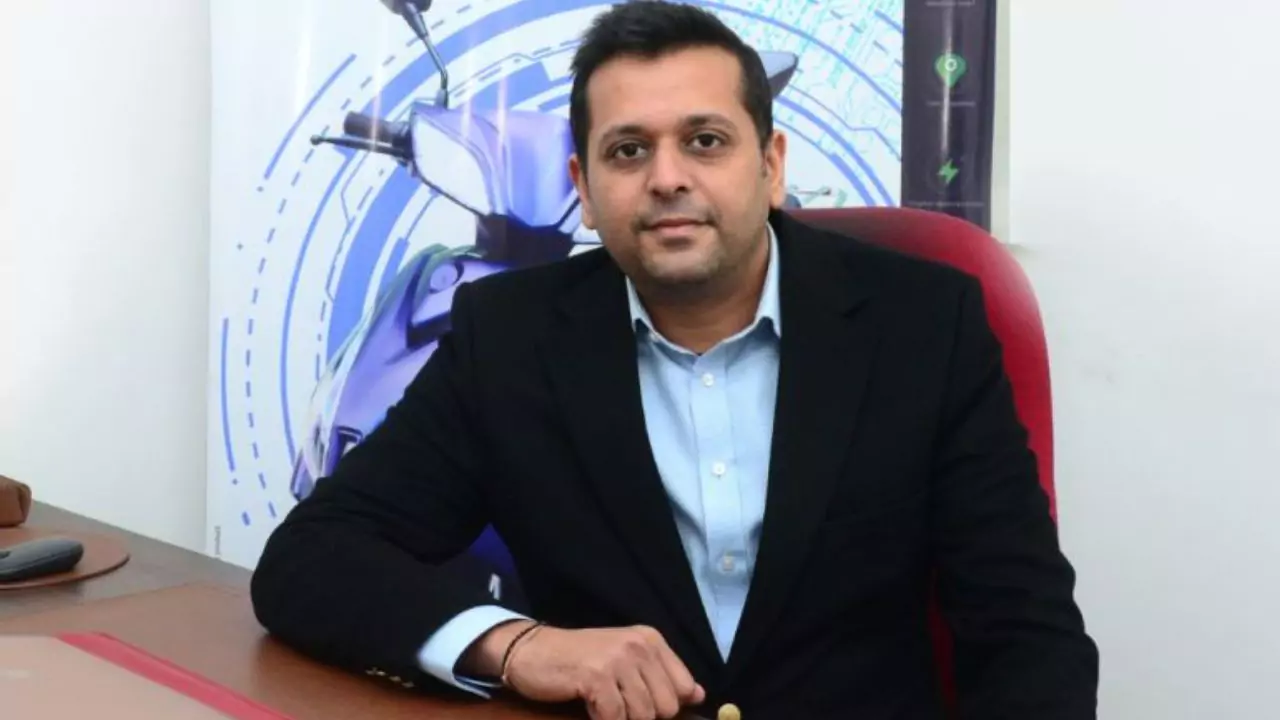I believe that start-ups will drive the next wave of growth in the country. On the Government’s part, several changes have been implemented to assist in the growth of these start-ups, such as tax advantages, relaxations in other labour standards, and so on.
In an exclusive Ecovahan Interview with Mr Rahul Jain, Director – Crayon Motors. Here’re the edited excerpts from that interaction:
Q. There are many challenges in front of the EV sector. Which do you think is the biggest of them all?
Ans: The biggest challenge faced by the electric vehicle sector is the lack of infrastructure. Despite the increasing demand for electric vehicles, there are not enough infrastructures in place to ensure their widespread adoption. This includes a lack of charging stations, limited access to spare parts and components, as well as a lack of consumer education and incentives. Additionally, the technology behind electric vehicles is still relatively new and thus expensive, making them less accessible to a wider audience.
Apart from this diverse weather condition of the country, range anxiety, high initial vehicle ownership costs, and EV financing are some key challenges in facing EV adoption to the Indian masses. But as we know the Indian EV ecosystem is still in nascent stage and we can always expect better things coming to the industry.
Q. Initial owning cost of EV is very high, how can we eliminate the concern?
Ans: Although the initial prices of an electric vehicle may appear to be higher, we must also take into account their exceptionally low operating costs, which radically impacts the equation and the cost of ownership.
Apart from the FAME programme from the central government, there are different subsidies from the state government, which help in assisting end customers in lowering the initial ownership cost.
Q. How EV start-ups can better serve the Indian consumers?
Ans: The evolving Indian EV market can be measured by noting the growing number of start-ups that are associated in the entire sector starting from manufacturing EV Components/EVs, developing charging infrastructure to provide battery swapping or after sales service to EV consumers.
Since the EV industry in India is still nascent, start-ups are playing a pivotal role in this space. India is a price-conscious market, just like it is in every other industry, and Indian consumers are always looking for value for money. EV conducive to Indian conditions at an affordable price is the formula that the start-ups need to crack.
Manufacturers must strive to reduce turnaround time for that technology sharing will be essential because maintaining this is an expensive endeavour for a single firm. By all means, the focus of the EV industry must be on safety. Introducing simple and reliable solutions that bring technology to the forefront will usher us faster towards the EV revolution
Q. What are the products and services offered by Crayon Motors to the Indian Market?
Ans: Crayon Motors offers electric two-wheelers with comfort speed specially designed keeping in mind the Indian whether condition and roads. This product line offer ranges between 60 to 170 kmph.
All products are designed with Indian roads, weather, and basic needs in mind. Digital screens, anti-theft, disc brakes, and GPS monitoring are a few of the features available on our scooters.
Since the introduction of our electric scooters, we have offered various value-added services to our consumers, such as roadside assistance and battery-switching options. With our recent tie-up with Ezetap, we have also included a financing option for both our merchants and customers.
Q. Tell our readers about Crayon Motors’ upcoming plans to expand its product line.
Ans: Our primary objective at the moment remains the launch of our high-speed scooters. Early in the upcoming year, we intend to launch four new products. The procedure of conducting trials, testing, and approvals is currently being finished for the entire product line.
We are also focusing on designing our own drivetrains because they would last longer and have better battery efficiency if they are compatible with Indian roads. We think that India’s success with electric vehicles would depend heavily on a durable drivetrain.
To improve the user experience, our primary focus in the near future will be to make EVs safer and more affordable for the end user.

